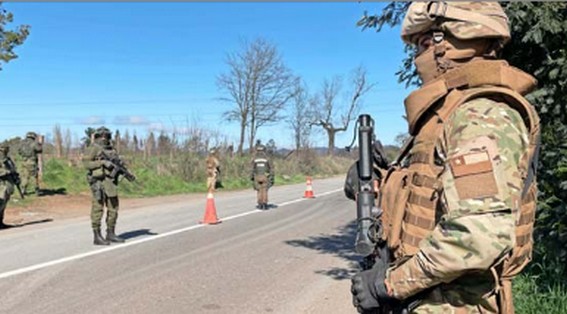- The Association of Forestry Contractors stated that "security is an issue to address, but (...) the victims who suffer losses of land, property, and even their lives have never been included in the government's concerns."
Just hours before President Gabriel Boric delivers his national address, criticism arises from the southern macrozone regarding the work carried out by his administration.
While the implementation and extensions of the state of emergency—which has reduced attacks in the sector by 60%, according to the government—are acknowledged, trade groups and legislators hope that measures like the Intelligence Law and updates to the Anti-Terrorism Law will materialize to prevent radicalized groups from regrouping after the arrests recorded in recent months.
Regarding aid for those affected by attacks, Alejo Apraiz, president of the Association of Victims of Rural Violence (Avvru), lamented that "we have always hoped for announcements of support for the sector, but they have never been fulfilled." He added, "In this public address, we no longer have any hope that they will consider the victims—they haven’t even provided funds for organizations like ours to continue working."
According to Apraiz, "the government is focused on reducing attacks," which has not been fully achieved. Thus, he says the work of groups like Avvru must continue without state support to provide "assistance, accompaniment, and guidance to the victims."
Sebastián Naveillán, president of the Malleco Farmers Association (the province with the highest number of attacks), argues that "attacks continue to occur with great intensity. It is crucial for the president to announce urgency for necessary laws like the Anti-Terrorism Law and to incentivize regional development and investment."
From another affected trade group, René Muñoz, manager of the Association of Forestry Contractors, asserts that "security is an issue to address, but (...) the victims who suffer losses of land, property, and even their lives have never been included in the government's concerns."
However, he criticized, "there is reparations for the so-called first line of the social uprising, with pensions and support."
Meanwhile, Senator Carmen Gloria Aravena (Republican Party) acknowledged the equipment provided to the police and the work of the Prosecutor's Office but emphasized that "laws like the Diligence Law and the Anti-Terrorism Law are still pending, which would allow the state to fully dismantle these organizations—groups that have attacked again this week in different locations."
The congresswoman stressed that "the biggest debt today is with the victims. The current system does not address multiple dimensions like psychological or emotional harm and focuses solely on achieving justice through court convictions. That’s why I hope that beyond emphasizing the reduction of attacks, President Boric can give the country the good news that the state will comprehensively support and stand by the victims of violence and terrorism."
Source:El Mercurio







Comentarios (0)
No hay comentarios aún. ¡Sé el primero en comentar!
Deja un comentario